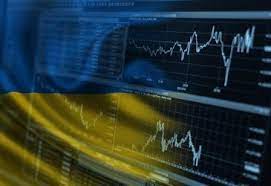
The volume of electricity exports from Ukraine to the European Union can replace approximately 17% of the Russian gas consumed by European countries, the Ministry of Energy believes.
“According to our estimates, electricity from Ukraine can replace approximately 17% of Russian gas exported to the EU,” Deputy Minister of Energy of Ukraine Mykola Kolesnyk said during a speech at the 25th Gazterm-2022 conference held in Poland on May 16-17.
According to the ministry, Ukraine submitted its proposals to the European strategy REpowerEU, which provide for practical steps to use the export capacity of the Ukrainian energy system.
“The new REpowerEU strategy should provide clear solutions in three aspects: how to replace Russian energy, how to end Russian control over energy assets in Europe, and how to ensure that this situation does not happen again,” the official said.
At the same time, the deputy minister emphasized the need for decisive action by the governments of European states regarding the complete rejection of Russian energy sources, noting that Ukraine remains a reliable partner of Europe in the energy sector and is ready to make a significant contribution to the reliability of natural gas supplies to European countries.
In particular, he drew attention to the possibility for European companies to use half of the capacity of Ukraine’s underground gas storage facilities (about 15 billion cubic meters) for seasonal or strategic gas reserves, which Energy Minister Herman Haluschenko announced in early May.
As reported, the Ukrainian government plans to resume the operation of additional transmission lines with Poland for the export of Ukrainian nuclear energy.
Foreign direct investments in the economy of Ukraine in the iii quarter of 2021 (operations, $ million)

NBU

During an online communication with the US university community, President Volodymyr Zelensky invited scientists to join the program to restore schools and universities in Ukraine, the press service of the President’s Office reported on Monday.
As the head of state said, a big plan for the restoration of Ukraine is being developed, which, in particular, provides for the restoration of schools, universities, institutes and other educational institutions.
“Thousands of educational institutions have been destroyed. For us, this is a great tragedy. Therefore, we will only be grateful to you if we have such restoration projects at the level of ministries of education, the level of educational programs, the level of universities,” the president said.
“When we talk about resumption, it is not only a question of money, but also of specialists. Because we can build some kind of institute, university, but it is very important that there are people who are carriers of knowledge and specialists. Therefore, we are ready for such joint work and will be very grateful if you help us develop new educational programs,” he added.
Zelensky stressed that the plan for the restoration of Ukraine provides for programs for the restoration of various sectors of the economy and public life.
“We are forming partnerships with this or that institution, with this or that state. We even have patronage. We already have several examples. I know that the United States will choose for itself a suitable region for the restoration of our country, Canada, European states,” the President said.
For the first time in history, the head of the Ukrainian state addressed the students and leaders of major universities under the auspices of the American Association of Universities. Representatives of about fifty institutions joined the meeting, including Yale University, Harvard University, Boston University, Duke University, Cornell University, Brown University. About 5.5 thousand students watched the live broadcast on campuses, the press service reports.

The negative balance of Ukraine’s foreign trade in goods in January-March 2022 decreased by 40 times compared to the same period in 2021 – to $31.6 million from $1271.6 million, the State Statistics Service reported.
According to its data, the export of goods from Ukraine for the reporting period increased by 2.9% compared to January-March 2021, to $14.101 billion, while imports decreased by 5.6%, to $14.132 billion.
The State Statistics Service clarifies that in March, compared to February 2022, the seasonally adjusted volume of exports decreased by 57.9%, to $2.483 billion, and imports, by 75.8%, to $1.663 billion.
The seasonally adjusted foreign trade balance in March 2022 was positive and amounted to $0.819 billion, while in February 2022 it was negative – $0.969 billion.
The export-to-import coverage ratio in the first quarter of this year amounted to 1.00 (in the first quarter of 2021 – 0.92).
The State Statistics Service specified that foreign trade operations were carried out with partners from 214 countries of the world.

“We can confirm that there is a trend for Ukrainians to return home. We really see all the migration, we see all countries. Today, according to the Kyivstar database, Poland has accepted 35% of Ukrainians who have left the country, Germany – 15%, the Czech Republic – 7%, Italy – 5%, Moldova and Romania – 2% each, that is, these are the list of the top countries where Kyivstar customers went,” Kyivstar President Oleksandr Komarov said in an interview with Interfax-Ukraine.
He also said that according to the operator, there are about 8.7 million internally displaced persons in Ukraine.
“These are two types of migration: from big cities to towns and from east to west. Approximately 4 million people have moved to other areas of the country, others have moved from cities to villages within their regions. The internal migration of such a large number of people is a technical challenge for mobile networks,” Komarov said.
According to him, today the average speed of mobile Internet in the Kyivstar network has fallen from about 38 Mbps to 28 Mbps due to the fact that almost 5 million subscribers have left the cities for the countryside.
“From territories where mobile data transmission is available in the 1800MHz and 2600MHz bands, they went to where LTE-900 technology works, which has a lower capacity. And this is the reason that we are now rethinking our plan to build new base stations for this year. For example, in areas with strong growth in subscribers, we plan to move from LTE-900 to LTE-1800, it is possible to increase it up to 2600 MHz somewhere,” the president of the operator said.
He also said that the operator focuses on the subscriber migration data in terms of network development. In particular, the changes affected plans to build a gigabit network.
If earlier the operator focused in this part mainly on large cities, then during the war, the construction of a gigabit network in Lviv was completed in the first place, and it is also planned to expand other sections of the network in Western Ukraine.
As reported, specialists of the Kyivstar mobile network operator in the two months of the war eliminated more than 48,000 accidents in the physical and digital infrastructure of the network, and also replaced almost 25,000 meters of optical fiber.